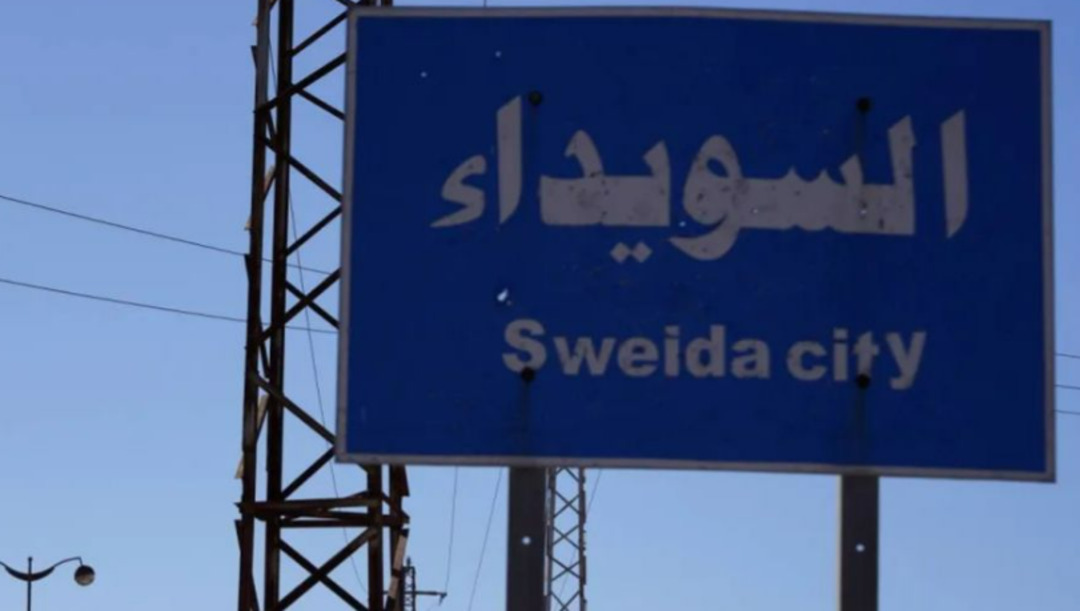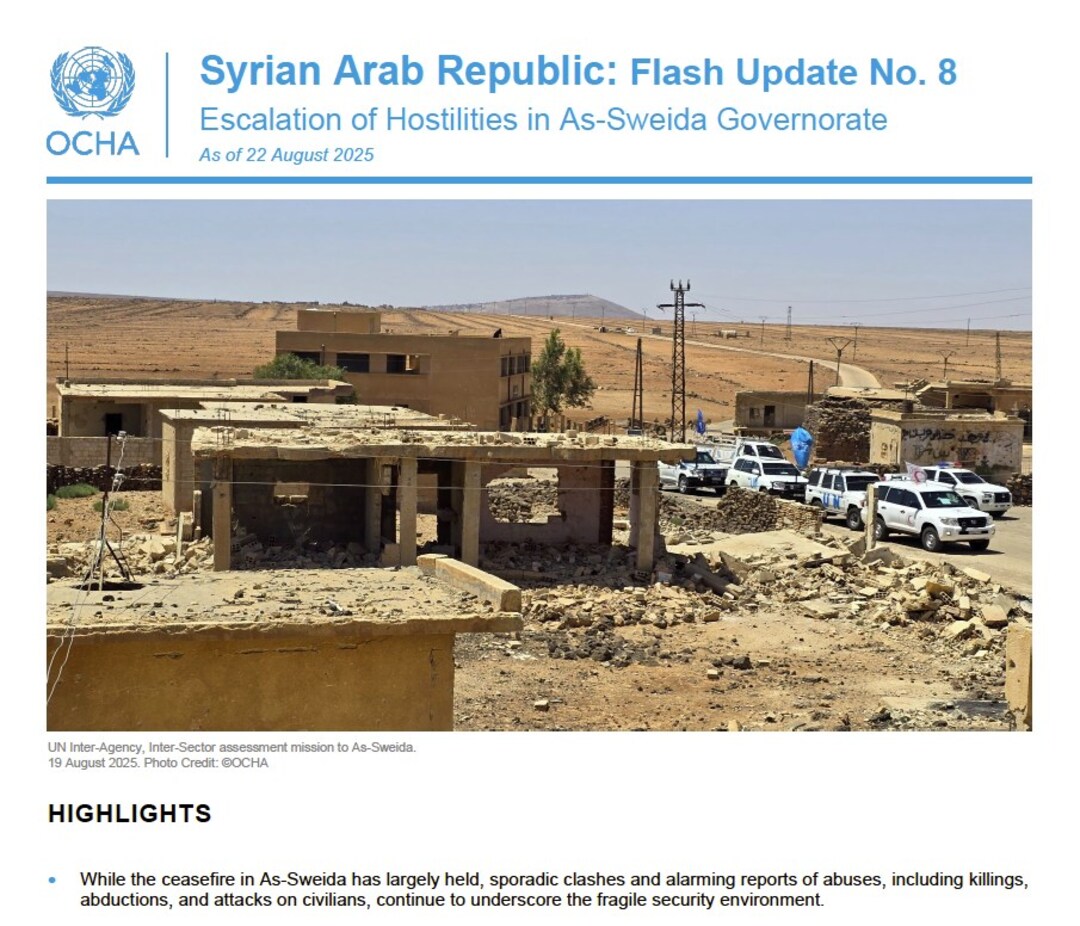-
Humanitarian Operations in Sweida Escalate Amid Fragile Security Situation

Although the ceasefire agreement in Sweida remains largely in effect, the increase in sporadic clashes and reports of violations—including killings, abductions, and attacks on civilians—highlight the fragile security situation in the area. As of August 19, the UN’s internal displacement working group reported that approximately 184,000 people have fled Sweida, with 63% still within the governorate, while the rest have settled in Daraa and Rural Damascus. Among the displaced, about 13,800 individuals have returned to their towns, with 83% returning from Daraa and 17% from Sweida.
On the humanitarian needs front, the shelter and non-food items sector remains a top priority, alongside access to clean water and sanitation facilities, as well as healthcare services, especially in areas with weak or overburdened health infrastructure. Food security continues to be a major concern for affected communities, as their basic needs remain unmet.
Reports indicate that essential services in Sweida are still severely disrupted, complicating recovery efforts and the return to normal life. In this context, the UN Resident Coordinator and Humanitarian Coordinator launched a joint mission to the region, meeting with local communities and authorities to assess urgent needs across health, water, energy, and education sectors.

Between July 20 and August 21, 14 humanitarian convoys delivered vital aid to Sweida, assisting more than 314,000 affected individuals with food, medical supplies, and basic household materials. On a national level, the UN Office for the Coordination of Humanitarian Affairs (OCHA) is working to strengthen cooperation with the Emergency and Disaster Management Ministry, maintaining high levels of coordination with local authorities and government agencies to ensure aid delivery and resource allocation.
Despite ongoing efforts, significant gaps remain in humanitarian response. The increasing needs require greater international funding and support to sustain and expand life-saving assistance and to meet the remaining unmet needs of those affected in the region.
You May Also Like
Popular Posts
Caricature
opinion
Report
ads
Newsletter
Subscribe to our mailing list to get the new updates!






















